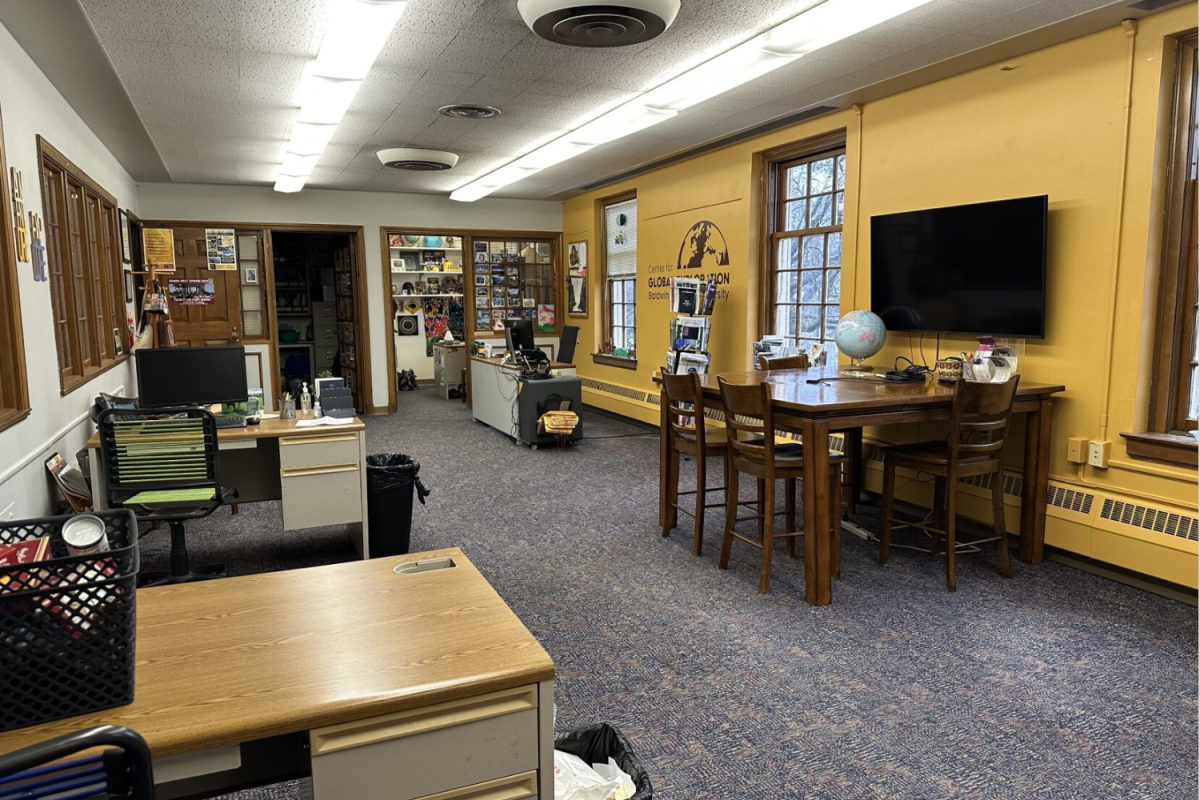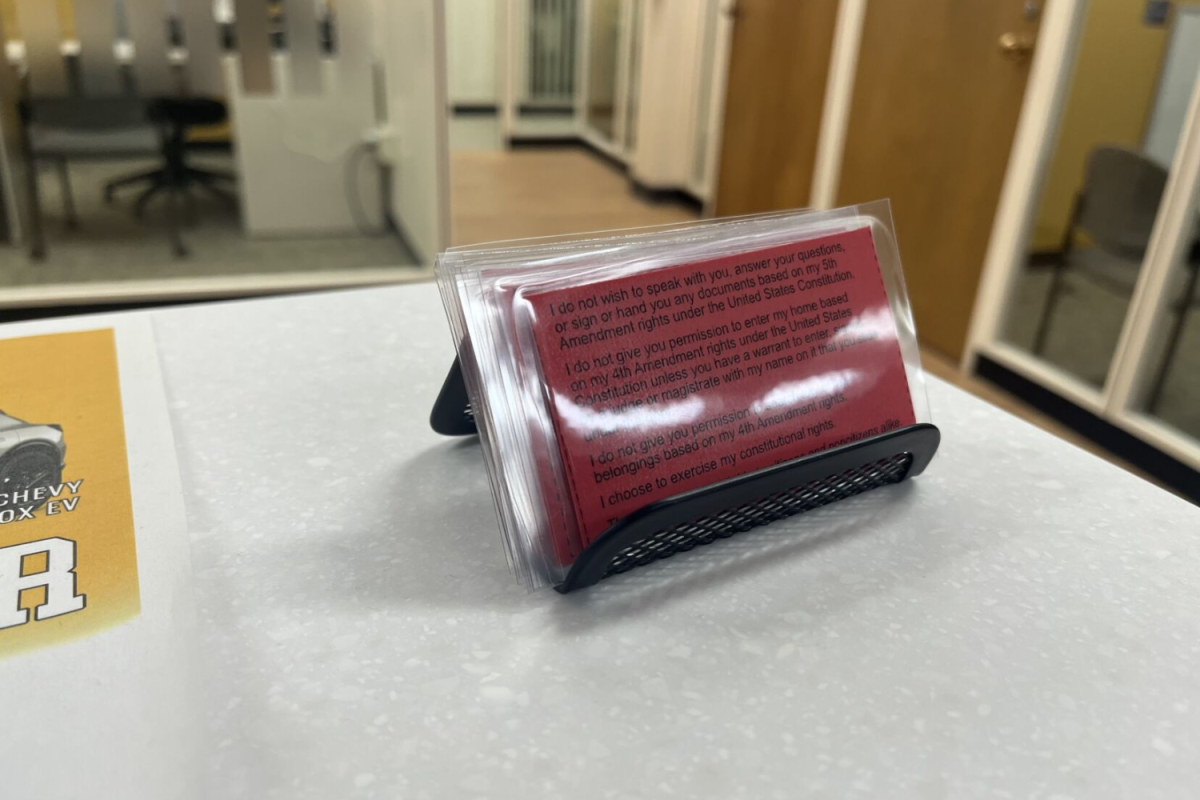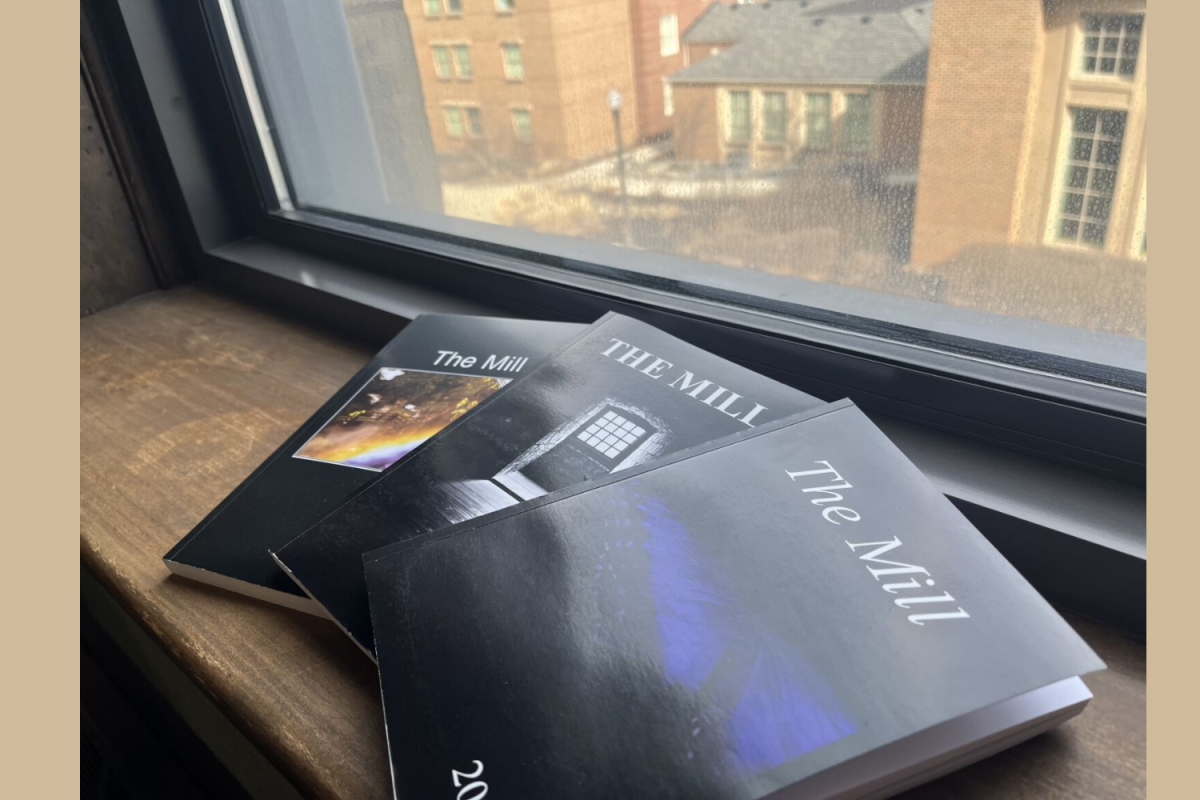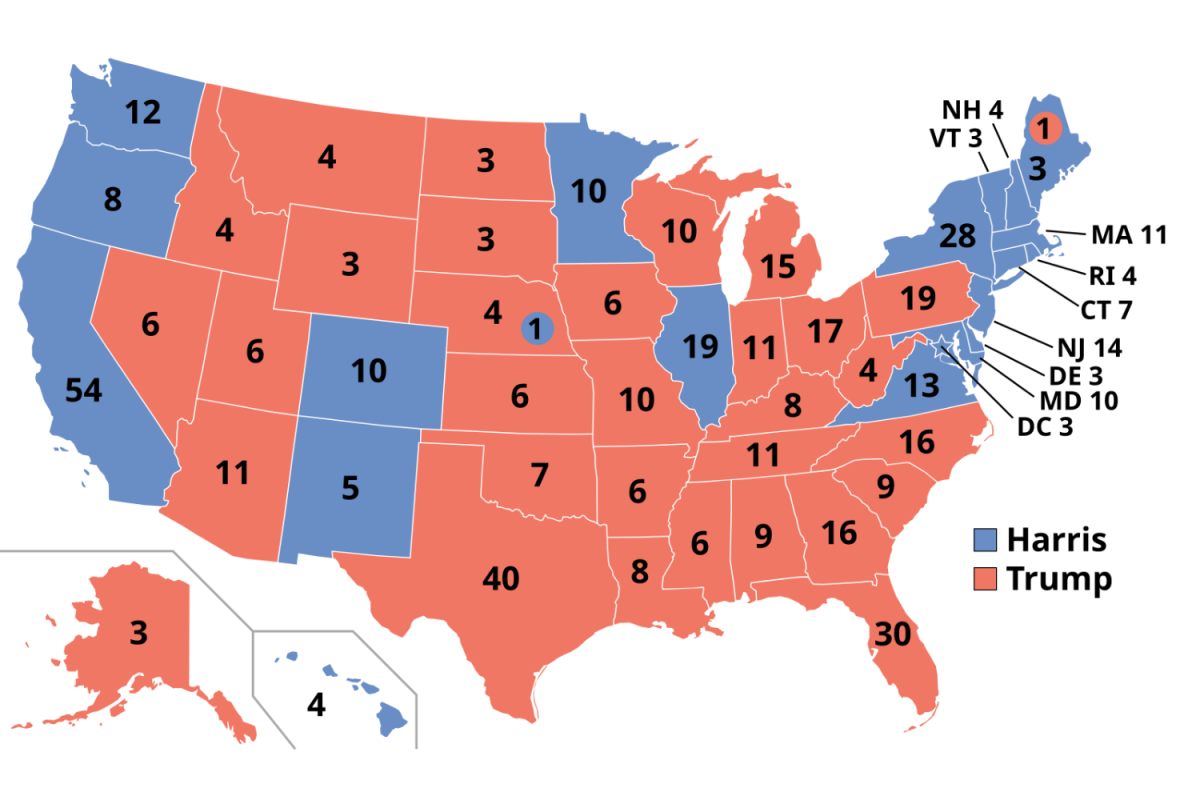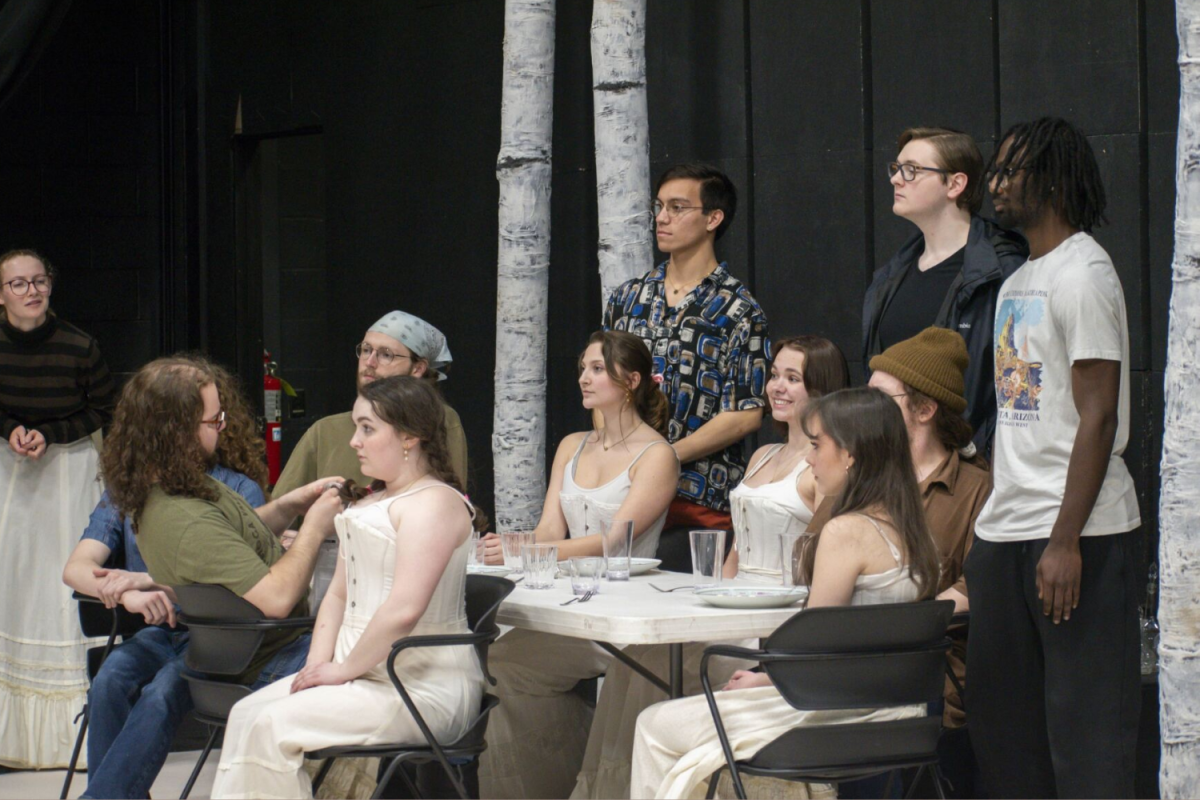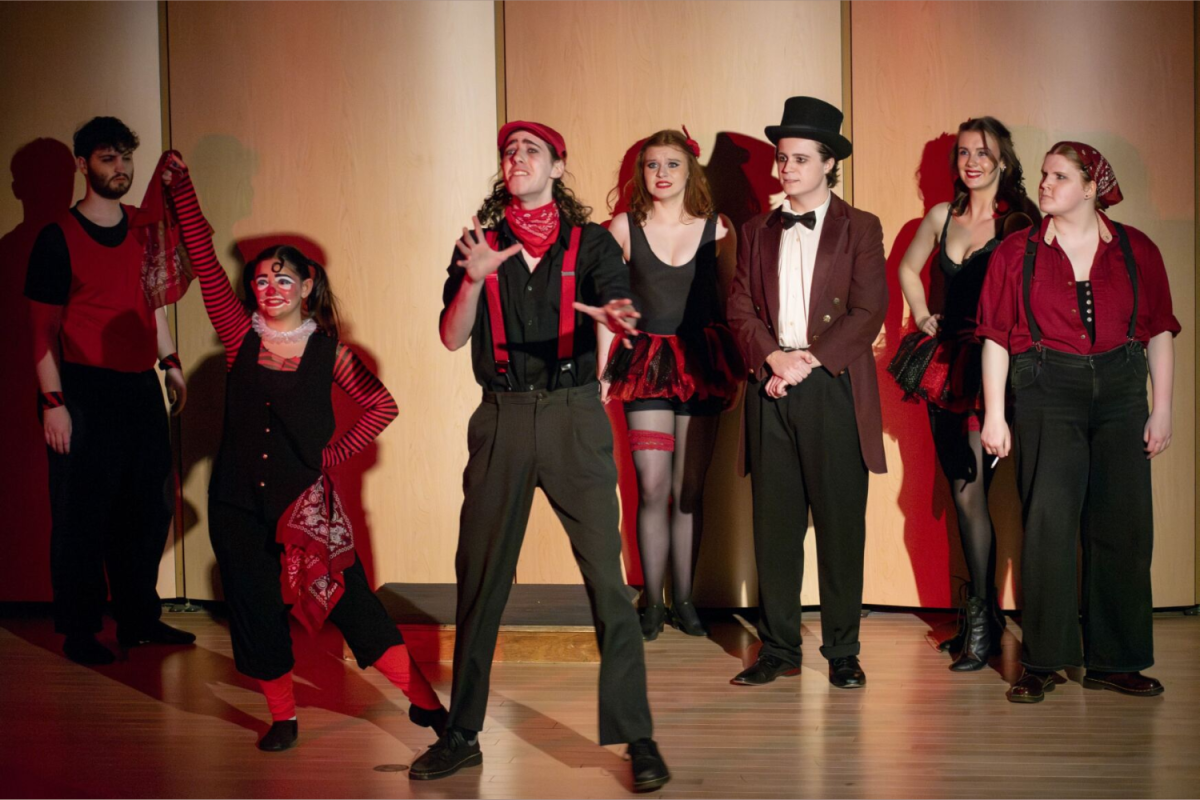Baldwin Wallace theater students share the story of people in a small town amid an economic recession with the play “Sweat” which premieres Wednesday in the Black Box Theatre in the Kleist Center for Art & Drama.
Written by Lynn Nottage, “Sweat” centers on a group of factory workers in Reading, Pennsylvania as they struggle to keep their lives in balance with the impending economic crisis on the horizon.
The Pulitzer Prize-winning play is directed at BW by guest director and BW alum Nathan Henry, recipient of the 2018 Cleveland Scene Theatre Award for Best Director. Henry also recently directed “Pippin” for BWMT.
“‘Sweat’ is a highly provocative, dramatic story about a group of small-town Reading, Pennsylvania, and they are challenged with … the changes in the economy, recession, political [and] economical challenges that the factory and city is having,” Henry said. “All of those things are affecting their human relationships with friends, family, neighbors, and acquaintances.”
Much of the action in “Sweat” takes place in a bar, where, according to Henry, alcohol “removes the filter” and allows people to reveal their true thoughts. As the scenes shift through time, the play examines the disintegration of two women’s friendships as they apply for the same upper management position at a company.
Senior B.F.A. acting student Cassie White, who plays alcoholic and comedic relief Jessie, said that learning about African American playwrights is not common in the theater curriculum, so to learn about real African American stories is very exciting.
“To even be able to do a play like ‘Sweat’ that addresses so many issues is amazing, especially in a collegiate level, because I don’t think a lot of these issues are talked about,” White said. “When we talk about American history,… we don’t talk about … a lot of the racial prejudice and injustice that goes into jobs that are ingrained in society.”
With such complex subject matter, Henry and the rest of the cast spent much of the early rehearsal delving into each scene and taking their time to understand all the characters’ actions.
“You know, we have a tendency to say that sometimes life imitates art, which imitates life. And we again are finding the similarities in these characters, but also people that we know in our own lifetimes,” Henry said. “I’ve never come across a play where the character seems so real.”
Junior B.F.A. acting student Evan Monski, who plays parole officer Evan, said that doing character work was very interesting because his character is only in two scenes, and he opens the show. Monski looked to friends and family to help form his character’s backstory and deepen his connection with the play.
“I feel like to this day, we still see a lot of struggles with family,” Monski said. “I know people who’ve been through depression [and] who have been using drugs and medication, … people very close and dear to me, and so just kind of feeling that just made my connection with the show even stronger.”
Henry said he structures rehearsals like a “playground” for the actors to do what feels natural for the scene, allowing the students to “find life in general in this small town.”
BW resident set designer Jeff Herrmann approached senior theatre tech and design student Jason Luck to design the set for “Sweat.” After his work during “Burial at Thebes,” Luck said he felt more prepared because he was familiar with the process.
Luck designed the set as a thrust stage, where audiences will be seated in front of and on either side of the stage, allowing them to see other spectators.
“How can I create one cohesive space that represents locations?” Luck said. “He [Nathan] wanted the audience to be able to see each other so that the audience can experience seeing this play together.”
Monski said that this play needs to be experienced with a group of people, which enhances the audience’s ability to understand “Sweat’s” message that everybody struggles and needs help, so people must try to understand others’ perspectives.
“People need to understand that people’s lives aren’t always as easy as they seem,” Monksi said. “I think people need to have respect for people who don’t get stuff done right away. It takes time to do certain things.”
White said that “Sweat” shows what happens when people are stuck in one place for their entire life. But it also stresses that people can get out and break away from the monotony and few opportunities from being in a small town.
White said: “I think it’s really important to show why if you’re stuck in one place for your entire life, what it can do to you and to your hopes and dreams and aspirations, and I think it’s important to show people that they can get out of that.”
Because the actors are taking on such heavy themes, Henry said he had to be careful to ensure the students were not risking their mental health in the rehearsal room.
“Something can be triggered and that trauma can just come on back, … so I’m, I’m trying to be extra careful with the human beings who are risking their own emotional wealth, who are taking this great leap to do this profound show,” Henry said. “When you step off the stage, turn the characters off because these are not you.”
Henry said that he wants audiences to prepare for an emotional play. Though it has joyful moments, it can be challenging for some people to handle.
“I want them to feel something. I don’t want them to be angry at the play. I want them to be proud of the students. I want them to be sad at the characters’ stories. I want them to conjure up their own memories. I want them to be aware that there are numerous situations and issues and challenges for people around the world who may not share their own social location,” Henry said.
“Sweat” does have a content advisory, addressing the following: mature language and discussions of sexual situations, simulated smoking of cigarettes, discussions of arson, people experiencing homelessness, implied drug abuse, drug addiction, alcoholism, racial and gender microaggressions, sexism, and racial and physical violence. The play is recommended for audiences ages 14 and up.
“Sweat” runs March 20-24 in the Black Box Theatre in Kleist Center for Art & Drama. Tickets are free for students and can be purchased here.

